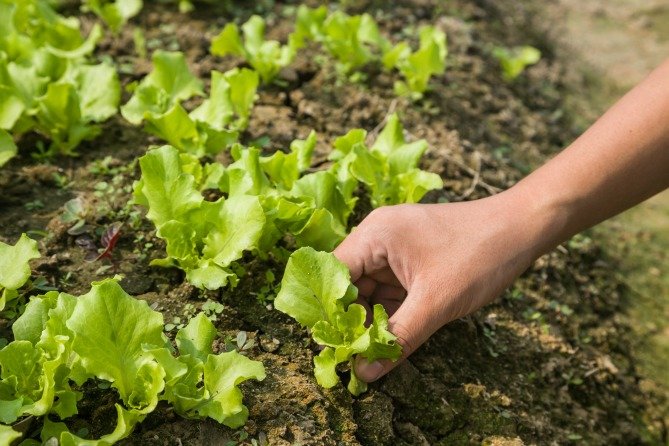Are you looking for an opportunity to travel, learn about sustainable living, and work outside? WWOOFing may be right for you. WWOOFing stands for Worldwide Opportunities on Organic Farms and provides a chance for willing workers to work on organic farms around the world in exchange for food and lodging.
WWOOFing was started in England as Working Weekends on Organic Farms and has since gained popularity around the world. It provides a chance to learn practical farming and homesteading skills, while being physically active, and experiencing new cultures.
We have a few participating farms right here on the Eastern Shore. I had a chance to work on one last week in Salisbury, MD. Calliope Farms is a small, family operated farm, about three acres, that is fully committed to sustainable and organic agriculture.
Calliope Farms sells produce at the Camden Ave Farmer’s Market and the Lewes Farmer’s Market, as well as distributes CSA shares to local residents and restaurants. They also happen to be a participating WWOOFing farm.
Lisa Garfield, the owner and farmer at Calliope, said that WWOOFers in the past have had a range of expectations. Some come to immerse themselves in the farming lifestyle and learn new skills, while others may have had good intentions but were not prepared for the hard work WWOOFing entails.
As you may expect, work on a farm is not easy. It is, however, incredibly rewarding. Harvesting three acres of produce is not working in your backyard garden so being realistic about what you can do is important. If you are considering WWOOFing, talk with the farmers about their expectations.
There are a wide range of farms that participate and all have different goals for the experience. Lisa, for example, likes participants to be involved in meal planning and preparation, as well as farm work. After only spending a short time with her, this seems like a bonus because she sounds like an incredible cook. She has had all season to eat this food and develop creative dishes around it. She even inspired me to try roasted okra- which is delicious by the way.
Money does not exchange hands so hard work and trust are critical to a successful WWOOF. You have to become a member of the organization for a small fee and must be eighteen years or older, but prior skill is not a requirement. There are WWOOFing opportunities worldwide, providing a great way to travel frugally. Participating farms are located in about 50 countries around the world and in all 50 states.
It was nice to be able to work side by side with Lisa and talk to her about her farming philosophy and struggles as a small business owner and organic farmer. She strives to “sustain the land that sustains us.” It is evident that farming is not just a job for her – but a lifestyle. She even joked that in her spare time, she tries to grow new varieties of seeds for fun.
I gained insight into her food that would have been impossible to deduce from a grocery store sign or even a short conversation at the market. Many of her customers have been to the farm so have a sense of added-assurance as to what they are feeding their families and themselves.
Lisa welcomes volunteers to her farm to ask questions and participate. She was incredibly welcoming and helpful. This is one of the best perks of supporting local farms and farmers so take advantage of it. Use WWOOFing as a frugal way to travel, to learn practical farming skills, and to meet like-minded people. Even if you can’t commit to a full WWOOF, ask your farmer if they will let you come and work on their farm. I can’t imagine them turning you down – it’s free labor!









